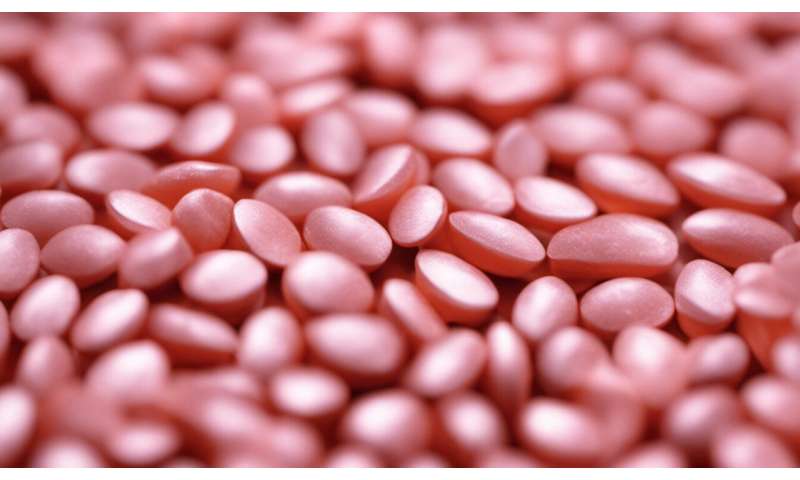
Nothing in medicine is as exciting as discovering new drugs. However, this process is time consuming, expensive and not always necessary. Sometimes, existing drugs can be used to manage illnesses that are different to those they were developed for.
This “repurposing” approach has many advantages. Existing drugs already have an established safety record and may no longer be covered by patents, making them cheap and easy to roll out.
For these reasons, the medical and scientific community decided early on in the pandemic to investigate whether existing antiviral drugs (including lopinavir-ritonavir, hydroxychloroquine and remdesivir) – alone or in isolation—could improve survival in infected patients. It seems intuitive that a drug developed to target a particular virus might be effective against a closely related one.
But perhaps less obvious is the suggestion that statins may be effective in treating COVID-19. Why should drugs used to prevent heart disease be useful in a viral infection?
One drug, many effects
The first stage in drug development is the identification of a biological target—perhaps a protein or an enzyme that, if not working correctly, results in illness. Drugs are designed to interact with the target and restore its normal function.
However, it is rare for drugs to act exclusively on their desired target. The messengers used by cells to regulate their functions and communicate with each other are similar throughout the body—calcium, for instance, is a ubiquitous messenger.
Just as an antiviral drug may act against a range of similar viruses, a drug designed to alter calcium signals in one specific place will likely cause a range of effects throughout the body. These so called off-target effects of drugs are responsible for most unwanted side-effects.
However, off-target effects are sometimes beneficial—and this is where statins come in. Statins aim to lower cholesterol, which is essential for many biological processes but can lead to heart disease if levels are too high. Cholesterol is produced in most cells of the body through a long, complex series of chemical reactions, which are facilitated by special proteins called enzymes. Cholesterol is insoluble in water, so cannot dissolve in the blood, and is carried instead in particles called lipoproteins.

Unfortunately, some lipoproteins can become trapped in the walls of blood vessels in a process called atherosclerosis, which leads to heart attacks and strokes. Statins work by blocking an enzyme early in the pathway of cholesterol production. This deprives the liver of cholesterol, which compensates by taking up lipoprotein particles from the blood, meaning they are no longer able to enter the walls of blood vessels.
The production line for cholesterol is complex and branches off at various stages to produce a range of biological molecules. Statins reduce the production of these as well as cholesterol and this, it is believed, contributes statins also having an anti-inflammatory effect. Inflammation is our body’s short-term response to harmful stimuli, but extreme activation of inflammatory pathways can be life threatening. This is what happens in some severe cases of COVID-19.
So could the anti-inflammatory effects of statins be helpful in avoiding extreme inflammation in COVID-19? It’s an attractive idea, especially as laboratory data suggests that statins may also have a direct antiviral effect by blocking production of molecules viruses need to replicate.
However, many attractive ideas in medicine don’t work out in practice. Statins have the potential to cause harmful interactions when given together with antiviral drugs used in COVID-19, and may not be suitable for some individuals, including those with with liver disease or rhabdomyolysis (a rare muscle condition).
From theory to practice
Already, several investigators have compared the outcomes of COVID-19 infections in patients who take statins with those who do not. The results have been reassuring, generally suggesting that statin use does not cause harm. And in one of the largest studies of its kind, statin use was associated with fewer deaths. But while the results of these studies are interesting and important, they cannot answer the question of whether statins could treat COVID-19.
This is because patients taking statins are likely to be (on average) different to those who do not them. The fact that some individuals are taking a drug may indicate that they are sicker, or that they are receiving better healthcare, or that they are particularly concerned about the prevention of disease. When we know about these differences, and can measure them, we can adjust our analysis to take account of them. But we are very unlikely to know about all such differences, and this creates bias.
Such studies also cannot tell us anything about the potential of statins to treat individuals who wouldn’t usually take the drug. For this, we need randomized controlled trials in which patients are allocated to receive a statin or a placebo completely by chance. This ensures that there are no differences (on average) between the treatment (statins) and control (placebo) groups of patients, and allows a fair test of the effect of the drug on the patient’s clinical condition.
Source: Read Full Article